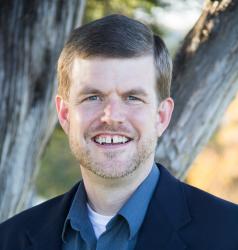Evangelical Christians sometimes struggle with how best to enforce “orthodoxy.” The past century of Protestant history could be written as a story of attempts to define what’s essential and what’s debatable on issues from the Bible’s “inerrancy” to more recent controversies over marriage, sexuality, and women’s ordination as pastors. Protestants typically appeal to the Bible as their final authority, but doing so is as likely to intensify disagreements as resolve them.
Carl Trueman argues that the boundary-setting problems of evangelicals could be assuaged by Protestant creedalism. His book Crisis of Confidence: Reclaiming the Historic Faith in a Culture Consumed with Individualism and Identity was originally published in 2012 as The Creedal Imperative. The trends that Trueman observed in 2012 toward hyper-individualism and pragmatism have only accelerated in the intervening years. Crisis of Confidence also serves as a prescriptive companion to Trueman’s compelling The Rise and Triumph of the Modern Self, his intellectual history of expressive individualism.
Given that gender transitioners and drag queens have become our culture’s icons, expressive individualism has clearly triumphed in the West. But has it infected the church, too? Certainly mainline Protestants and even many “progressive” evangelicals have fallen in lockstep with elite trends on radical subjectivity, most obviously regarding gender identity. Progressive and mainline churches have dwindled accordingly, while culturally traditional churches are often the most demographically robust.
Yet even in churches that have stayed faithful to biblical orthodoxy, a spirit of pragmatism, consumerism, and individualism often prevails. Doctrinal rigor is sometimes replaced by “your best life now” preaching (in megachurch pastor Joel Osteen’s phrase). This genre focuses on successful living more than historic doctrine. Church “members” come and go with blinding rapidity, often driven by factors such as which church has the most scintillating music or the most fun youth group. A church class on trinitarian doctrine might attract a few fogeys, but those on Christian-themed fitness or therapy will fill to overflowing.
Trueman offers creeds as a practical means to mitigate rising consumerism and self-obsession in churches. Some readers may be surprised to learn that many evangelical churches do not recite creeds in church services. Nor do they have an explicit commitment to the Apostles’ or Nicene Creed, or to one of the classic confessions of the Reformation era, such as the Westminster standards. They do often have a “statement of faith” shared by churches in their denomination (such as the Southern Baptist Convention’s “Baptist Faith and Message,” originally adopted in 1925), or one tailored especially for that congregation. But those statements often languish unmentioned in services. Crisis of Confidence is directed to churches that consider themselves doctrinally orthodox but do not recite creeds as a regular part of their liturgy.
What does a historic creed do for a body of believers? First, a creed gives the church a focus of objective truth that does not change across time or cultures. The reality about God is not something we imagine or invent. Instead, when we affirm a historic confession, we join the “cloud of witnesses” through centuries and across geographic space who have affirmed the truth about God. Second, creeds and confessions cultivate godly “affections,” as the great theologian Jonathan Edwards put it.
More than ephemeral feelings, the affections reflect the disposition of the heart, especially toward God. This cultivation of godly affections by affirming truth stands in sharp contrast to expressive individualism, which asserts that one’s feelings create truth. We see this phenomenon in today’s common claim that if I feel I am a woman, I must be one, regardless of what biology or chromosomes say.
Finally, confessions consciously connect us to church history and remind us that Christianity is not primarily about me, my feelings, or my congregation, pastor, or denomination. Confessions de-center (but do not de-value) the trials of faith that individual Christians inevitably endure. Such trials (often related to “church hurt”) usually feature in “deconstructionist” testimonies on social media. One’s doubts about Christianity matter, but the fact that I have questions about Christianity or hurtful church experiences doesn’t change the massive heft of the Great Tradition of Christian belief and practice. The scholar D.H. Williams defines the Great Tradition, from a Protestant perspective, as “the foundational legacy of apostolic and patristic faith, most accurately enshrined in Scripture and secondarily in the great confessions and creeds of the early church.” Scripture and historic confessions remind us of that monumental tradition.
Deconstructionists and “ex-vangelicals” rage against historic Christianity and sometimes act as if their attacks on Christian beliefs or churchly hypocrisies represent a veritable new Enlightenment. But their fulminations look smaller and less consequential when compared to the legions from every tribe, tongue, and nation who have believed and lived out the faith “once delivered to the saints” (Jude 3).
I heartily agree with Trueman’s recommendations about churches and confessions. Indeed, I am a member of a Southern Baptist church that regularly recites the Apostles’ and Nicene Creeds. I also work at a confessional Baptist seminary that takes no responsibility more seriously than teaching in accord with historic Christian orthodoxy. I do wish, however, that Trueman had probed a bit more deeply into the reasons why evangelical churches do not recite creeds and/or explicitly attach themselves to historic confessions. Resistance to creeds and confessions has taken a variety of forms, and the Protestant mantra “no creed but the Bible” has an older history than just the contemporary West’s captivity to expressive individualism.
This is not the place to review all the disputes over creeds in Protestant history, but it is worth noting that the concept of “no creed but the Bible” (a term that began to appear frequently in the early 1800s) was not always a cover for theological sloppiness or liberalism. Trueman’s Presbyterians, for example, fought bitterly in the 1700s over requirements that pastors “subscribe” to confessions (usually the Westminster Confession of 1646), in addition to affirming the Bible’s inspiration. Many conservative Presbyterians saw subscription to confessions as undermining the unique authority of the Bible.
When evangelicals began creating parachurch agencies such as the American Bible Society, they also cited “no creed but the Bible” to make the societies welcoming to all who affirmed the divine inspiration of the Scriptures. This parachurch temperament may be an instance of pragmatism, but it would be hard to construe as liberal.
Many biblicists were genuinely queasy over any implication that man-made confessions paralleled the Scriptures in authority. They wanted to make the distinction between themselves and Roman Catholics crystal clear on this point. For Protestants, who hold to sola scriptura and see the Bible as uniquely authoritative, there will always be uncertainty about what precise status a creed or confession holds in the church. Trueman persuasively argues, however, that no church ever adheres to the Bible and nothing else in its teaching. The theologically orthodox are always influenced by extrabiblical authors, traditions, and even terminology such as the “Trinity.” Every church is confessional, whether it admits it or not.
The Trinity is perhaps the best example of a core Christian doctrine that is essential to the Great Tradition but never labeled by its historic name (“the Trinity”) in the Bible. To Trueman, if you ever use terms like “the Trinity” in an authoritative way (“true Christians have always believed in the Trinity”), you are being creedal. It’s better to acknowledge what sources (Nicaea and others) codified biblical teaching on the doctrine, rather than acting as if you’re drawing on the Bible alone for belief in the Trinity.
Since the early 20th century, the mantra “no creed but the Bible” has indeed been used by some theological innovators to justify departures from the Great Tradition. Such advocates have rejected everything from the Trinity to the Virgin Birth to the physical Resurrection in the name of anti-creedalism. In my tradition, modernizing Baptists often cited “soul competency” to argue that no one besides God could rightly judge an individual’s beliefs or actions.
In its worst forms, soul competency echoed the radical individualism of figures such as Thomas Jefferson, in which there was no such thing as “orthodoxy” and you could dispense with whatever parts of Scripture you wished. Few went as far as Jefferson did when he literally snipped out miracles to craft the “Jefferson Bible,” but the liberal interpretation of soul competency had similar implications. In recent years, liberals have been the most likely Baptists to tout “no creed but the Bible” as they jettisoned traditional biblical teachings on issues such as marriage and sexuality. Such liberal Christians will never accept Trueman’s call to confessionalism. Some liberal Protestants do still recite creeds, of course, but they see confessing “faith” as more significant than what the creeds themselves say.
So who is likely to adopt Trueman’s recommendations? Probably the churches that affirm the Bible’s authority but that have not given explicit attention to the confessions (whether from the patristic or Reformation era) shaping their beliefs. Take, for example, an evangelical pastor who sees the doctrine of the Trinity as essential but whose church does not explicitly attach itself to the Nicene Creed. If this pastor did include the recitation of the creed in his church’s order of worship, it would probably receive an approving response from much of the congregation. Other members might quibble based on legitimate Protestant confusion about how the creed relates to Scripture.
The pastor might allay such concerns by noting that Christians have perennially seen creeds and confessions as “concentrated deposits of tradition” and historic statements of what “Scripture teaches in a synthetic form,” as Trueman puts it. These creeds (Apostles’, Nicene, etc.) have stood the test of time. They are the opposite of fads. The churches employing them are confessing biblical belief via a longstanding statement shared by many Christians around the world and throughout history. The recitation of the Nicene Creed in a biblicist church might also bring to light anti-Trinitarian or other heretical views that certain members hold and that need to be corrected.
At best, a simple liturgical shift to creeds might remind church members that their faith is far sturdier than whatever has caused the latest electronic freakout of our expressivist culture. We can rest easy knowing that we are not inventing the faith in this generation. We are simply passing on the faith once delivered to the saints to the next generation, as generations before us have done. This steady cycle will go on, by God’s grace, until the Great Shepherd returns to gather his church.

